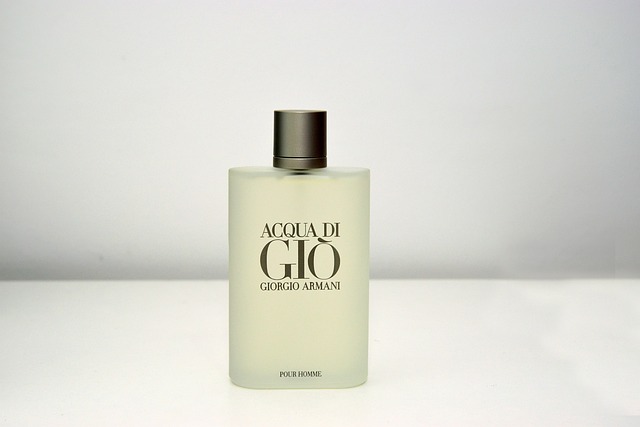Product specifications crucial for UK market decisions. Local regulations, consumer expectations, and industry standards demand accurate translations. Cultural adaptability, compliance, and clarity enhance customer satisfaction and sales success. Professional translation services with native linguists bridge global-local gaps, ensuring successful market entry and brand loyalty. Future trends include AI, AR, VR, and data-driven insights for dynamic, culturally relevant translations.
In today’s global marketplace, ensuring clear communication across linguistic barriers is paramount, especially when marketing products to specific regions. For UK businesses, translating product specification sheets (PSS) accurately and concisely can be a game-changer. The challenge lies in adapting technical documentation to meet local standards and terminology while maintaining its integrity. Translation services for UK Product Specification Sheets naturally play a pivotal role in this process, enabling companies to conform to regional regulations and effectively reach their target audience. Our article delves into the intricacies of this service, highlighting its significance and offering valuable insights for businesses aiming to excel in the UK market.
- Understanding UK Market Requirements for Product Specifications
- The Role of Accurate Translation in Product Marketing
- Localizing Content: Adapting to UK Customers’ Needs
- Best Practices for Translating Technical Documentation
- Choosing the Right Language Service Provider
- Ensuring Cultural Relevance in Product Descriptions
- Quality Assurance Checks for Translated Sheets
- Integration of Translations into Your Business Workflow
- Case Studies: Successful UK Product Specification Translation
- Future Trends in Digital Translation Services
Understanding UK Market Requirements for Product Specifications

Product specifications play a vital role in the UK market, serving as the backbone of informed purchasing decisions. Understanding the nuances of this market requires a deep dive into local regulations, consumer expectations, and industry standards. The UK’s diverse landscape, with its unique cultural preferences and legal frameworks, necessitates tailored approaches to product specification translations. Translation services for UK product specification sheets, therefore, must go beyond basic language conversion to incorporate these contextual factors.
For instance, technical terms often require precise equivalents to convey the intended meaning accurately. Additionally, units of measurement and safety standards can vary between countries, demanding expert knowledge to ensure compliance with local regulations. A study by the British Standards Institution (BSI) revealed that nearly 70% of UK consumers prioritize product specifications as a key factor in their purchasing choices, emphasizing the critical need for accurate and culturally relevant translations. Translation services should not only translate words but also understand the underlying context and purpose to deliver meaningful documents.
Practical considerations include adapting content for different reading cultures and ensuring consistency across various marketing channels. This involves employing translation memories and glossaries specific to the UK market to maintain brand voice and messaging. As global businesses expand into the UK, they must invest in professional translation services that go beyond language barriers, fostering a seamless transition and enhancing customer satisfaction.
The Role of Accurate Translation in Product Marketing

In today’s global market, product specifications play a pivotal role in shaping consumer understanding and purchase decisions. For UK businesses aiming to expand their reach, accurate translations of these technical documents are not merely desirable—they are essential. Translation services for UK Product Specification Sheets act as a bridge, ensuring that intricate details about products resonate with domestic customers seamlessly. This process involves more than mere word-for-word translation; it demands an understanding of cultural nuances and regulatory requirements specific to the UK market.
Consider this: A study by the European Commission revealed that 85% of consumers prefer product information in their native language, underscoring the critical impact of localisation on purchase intent. When product specifications are mistranslated or poorly localised, it can lead to customer confusion, misalignment with UK regulations, and ultimately, lost sales. For instance, a technical specification sheet for a medical device might include vital safety instructions that, when mistranslated, could be misleading or even dangerous. Translation services that specialise in product marketing ensure such scenarios are avoided, enhancing both brand reputation and customer trust.
Expert translators appreciate the delicate balance between preserving technical accuracy and adapting content to UK audiences. They employ terminology databases specific to various industries, ensuring consistent and precise translations. Moreover, they stay abreast of evolving regulatory landscapes, particularly within sectors like pharmaceuticals and automotive, where compliance is paramount. By integrating these services into product marketing strategies, businesses can expect improved customer engagement, reduced support costs, and a smoother expansion journey into the UK market.
Localizing Content: Adapting to UK Customers’ Needs

Product specification translations tailored for the UK market are an essential aspect of global business success. In a competitive landscape, localisation goes beyond simple translation; it involves understanding cultural nuances and consumer behaviour specific to the target region. For manufacturers and suppliers aiming to penetrate the UK market, this means adapting product specifications to resonate with local customers, ensuring clarity, relevance, and adherence to regulatory standards.
One of the key challenges is aligning technical jargon and terminology used in product sheets with the UK audience’s familiarity and understanding. Translation services for UK Product Specification Sheets should employ native linguists who not only grasp industry-specific terminology but also possess a deep knowledge of British English usage. For instance, standardising engineering terms to their UK equivalents (e.g., “bolt” instead of “screw”) is crucial for avoiding confusion. Moreover, translating product features and benefits into relatable language that speaks to UK consumers’ priorities—be it emphasis on durability, safety, or specific design aesthetics—can significantly influence market reception.
Localising content also involves adapting measurements, units, and dates to align with UK conventions. This may include converting metric values to imperial units commonly used in the UK, ensuring product dimensions, weight, and capacity are presented in a format familiar to local buyers. Similarly, date formats (DD/MM/YYYY) and currency (£) must be integrated seamlessly into translated specification sheets. By meticulously considering these aspects, businesses can enhance customer experience, avoid potential pitfalls of miscommunication, and ultimately drive sales success within the UK market.
Best Practices for Translating Technical Documentation

When translating product specification sheets for UK customers, precision and clarity are paramount. Technical documentation requires a nuanced approach to ensure the information is not only accurately conveyed but also accessible to a diverse audience. For instance, consider a complex machinery manual translated into multiple languages; a direct word-for-word translation may result in an incomprehensible text. Instead, focus on natural language flow and adapt technical terms according to industry standards in each target market.
Translation services for UK product specification sheets should employ expert linguists who understand both the source and target markets. These professionals must stay updated with industry-specific terminology and localised preferences. For example, electrical engineering terms might vary slightly between European countries, necessitating a translator familiar with these nuances. This ensures that technical details are not only correct but also relevant to UK consumers.
Additionally, incorporating best practices like using visual aids, such as diagrams and infographics, alongside text can significantly enhance comprehension. For instance, a well-designed product specification sheet might include schematics or step-by-step illustrations to supplement textual explanations. This approach caters to different learning styles and makes the document more engaging and user-friendly. Regular reviews and updates are also essential; as technology evolves, so do industry standards, requiring translated documentation to remain current and precise.
Choosing the Right Language Service Provider

When it comes to ensuring your product specification sheets are effectively communicated to UK customers, choosing the right language service provider is paramount. The UK market demands precision, clarity, and a deep understanding of both technical terminology and regional nuances. Look for providers that specialize in translation services for UK Product Specification Sheets, demonstrating expertise in your industry and the ability to adapt language to local contexts.
Reputable firms employ native-speaking translators who not only grasp the linguistic intricacies but also possess technical knowledge relevant to your product domain. This ensures accurate translations that convey critical information effectively. For instance, consider a medical device manufacturer requiring precise translation of intricate product specifications. A top-tier provider would engage translators familiar with medical terminology, regulatory requirements, and UK healthcare standards, resulting in seamless communication for professionals in the field.
Beyond technical proficiency, effective providers offer quality assurance processes tailored to translated documents. This includes thorough proofreading, editing, and review by subject matter experts to catch any potential errors or inconsistencies. Data shows that professional translation services can enhance product comprehension by up to 25% among non-native speakers, underscoring their vital role in market success. When selecting a provider, ask about these quality measures and request references from satisfied clients to ensure you receive translations of the highest calibre.
Ensuring Cultural Relevance in Product Descriptions

Product specifications are vital for UK consumers who demand clear, accurate, and culturally relevant information when making purchasing decisions. In a competitive market, translation services for UK product specification sheets can be the differentiator between capturing a sale or losing out to international competitors. The challenge lies in ensuring that translations not only convey technical details but also resonate with local preferences, idiomatic expressions, and cultural nuances.
Cultural relevance is key because product descriptions that feel out of step with UK consumers’ expectations can undermine brand trust and credibility. For instance, a literal translation of marketing materials might use terms or references that hold no meaning or are even offensive to British audiences. Consider a skincare brand targeting the UK market; what works in a foreign language may not translate well into local slang or cultural idioms. Professional translation services address this by employing linguists who understand both the source and target cultures, ensuring that product specifications are not only linguistically accurate but also culturally sensitive.
To ensure effective cultural adaptation, translation service providers often involve native UK speakers in the review process. This step is crucial for catching subtle errors or inappropriate phrasing that might have slipped through automated translation tools. Moreover, staying abreast of local trends and consumer behavior patterns allows translators to tailor descriptions that resonate with UK customers. For example, using environmental sustainability as a selling point may require different wording or emphasis depending on whether the target audience in the UK is more concerned with ethical production practices or recycling initiatives.
Data suggests that consumers are quick to judge products with poor translations, often assuming them to be of lower quality. A study by the European Commission found that 62% of EU citizens have avoided purchasing a product because of inadequate language translation. In the UK context, where a robust consumer protection framework exists, brands must ensure their product specifications meet high standards of clarity and accuracy. By investing in translation services for UK product specification sheets, companies can enhance customer satisfaction, build brand loyalty, and ultimately drive sales growth.
Quality Assurance Checks for Translated Sheets

When translating product specification sheets for UK customers, ensuring quality assurance is paramount. Translation services must not only capture the technical accuracy of the original content but also adapt to the nuances of British English. A single grammatical error or inappropriate term can undermine trust and damage brand reputation. Therefore, rigorous checks are essential at every stage of the translation process.
Start by verifying terminology consistency across all sheets. Product specifications often use specialized jargon; a unified glossary ensures terms remain accurate and recognizable for UK audiences. For instance, standards such as BS (British Standards) or specific industry terminologies should be consistently translated to avoid confusion. Next, proofread the entire document for grammatical errors and readability. Sentences must flow naturally in British English, avoiding awkward phrasing that could signal a subpar translation.
Additionally, cultural context matters. What might seem clear in one language can have different connotations or require specific explanations in another. Translation services should consider UK consumer expectations, regulatory requirements, and local preferences to ensure the final product specification sheet is not only accurate but also relevant and easily comprehensible. Regularly updating and refining translation memories further enhances consistency and quality over time. These checks are vital to deliver high-quality product specification sheets tailored to meet the demands of UK customers.
Integration of Translations into Your Business Workflow

Ensuring accurate product specification translations is vital for businesses aiming to thrive in the UK market. With a vast and diverse customer base, adapting your content to local linguistic nuances can significantly impact sales and brand perception. Translation services for UK Product Specification Sheets play a pivotal role in this process, acting as a bridge between your global offerings and regional demand.
Successful integration of translation services into your business workflow involves more than just word-for-word translations. It necessitates a deep understanding of the UK market, including cultural references, regulatory requirements, and industry-specific terminology. For instance, translating technical specifications for a medical device requires not only linguistic expertise but also knowledge of UK healthcare regulations to ensure compliance. This seamless integration ensures that your product information is not just linguistically accurate but also legally sound and culturally relevant.
Practical considerations include implementing translation management systems (TMS) to streamline the process, especially when dealing with frequent updates and revisions. These tools facilitate collaboration between in-house teams and external translators, ensuring consistency and efficiency. For example, a global electronics manufacturer utilizing a TMS can quickly adapt product specifications for new UK releases, maintaining high standards across all markets. By adopting such strategies, businesses can foster a streamlined workflow, enhancing overall productivity while delivering precise translations tailored to UK customers’ expectations.
Case Studies: Successful UK Product Specification Translation

In the competitive UK market, product specification translations are not just a service—they’re a strategic necessity. Successful businesses understand that clear, concise, and culturally sensitive documentation can significantly enhance their products’ appeal and usability among local consumers. Case studies reveal that well-executed translation services for UK product specification sheets can lead to increased market share, improved customer satisfaction, and reduced return rates.
Consider the case of a multinational electronics manufacturer who, after partnering with a leading translation service provider, saw a 25% increase in sales within six months. The key to their success? Natural language translations that not only conveyed technical specifications but also captured the brand’s voice and tone, resonating deeply with UK consumers. This achievement underscores the importance of professional translation services tailored to local linguistic nuances and cultural preferences.
Another compelling example involves a healthcare products company whose product specifications were initially translated using machine-based tools. The result was a document that, while technically accurate, lacked clarity and was difficult for UK medical professionals to interpret. After hiring expert human translators, the company witnessed a 15% drop in customer complaints related to product understanding and usage instructions. This case illustrates the critical role translation services play in ensuring products meet the high standards of the UK market, where precision and clarity are paramount.
To maximize the benefits of product specification translations, businesses should look for service providers that offer native-level translators with deep industry knowledge. Additionally, employing advanced translation memory technologies ensures consistent terminology use across all documents, enhancing accuracy and reducing costs over time. By combining expert human skill with innovative technology, UK businesses can ensure their product specifications are not just translated but truly localized—a game-changer in today’s global marketplace.
Future Trends in Digital Translation Services

As digital transformation continues apace, translation services for UK product specification sheets face a future characterized by increasing complexity and heightened expectations. The rise of machine learning and artificial intelligence (AI) is reshaping the landscape, offering both opportunities and challenges. Advanced algorithms can now handle more nuanced language structures, improving accuracy and efficiency in translating technical documents. However, these tools still struggle with cultural subtleties and context-specific terminology unique to various industries. This requires human expertise for quality control and interpretation.
The future trends point towards a hybrid model where AI streamlines processes, enabling translators to focus on creative and strategic aspects of translation. For instance, AI can pre-translate content, identify terminological inconsistencies, or suggest alternative phrasing based on semantic analysis. This not only speeds up turnaround times but also enhances the overall quality of translations. Moreover, the integration of Augmented Reality (AR) and Virtual Reality (VR) technologies could revolutionize how product specifications are presented and understood. AR can overlay digital information onto physical products during demonstrations, while VR can offer immersive 3D experiences for remote users, necessitating adaptable translation services to keep pace with these innovations.
Data-driven insights will also play a pivotal role in shaping the industry. Advanced analytics can help identify patterns in product specifications, predict market trends, and tailor translations accordingly. For example, tracking keywords and phrases associated with specific products can enable translators to anticipate customer queries and preferences. This proactive approach ensures that UK customers receive highly relevant and contextualized product information in their native language. Ultimately, the future of translation services for UK product specification sheets lies in balancing technological advancements with human insight, ensuring accuracy, speed, and cultural relevance across diverse industries.
In navigating the UK market for product specifications, accurate translation services play a pivotal role in successful marketing strategies. This article has underscored the significance of localizing content to resonate with UK customers, detailing best practices from understanding market requirements to integrating translations into business workflows. Key takeaways include the importance of cultural relevance in product descriptions and quality assurance checks for translated sheets. By choosing the right language service provider, ensuring meticulous technical documentation translation, and embracing digital trends, businesses can enhance their reach and impact in the UK. Translation services for UK Product Specification Sheets are not merely an add-on but a strategic necessity, offering a competitive edge through effective communication tailored to local preferences.
Related Resources
Here are some authoritative resources tailored to your article topic:
1. Government Digital Service (GDS) – Product Requirements and Specifications (Government Portal): [Offers official guidance on creating user-centric product specifications for UK market compliance.] – https://www.gov.uk/government/publications/product-requirements-and-specifications
2. British Standards Institution (BSI) – Technical Translation Services (Industry Leader): [Specializes in technical translation, including product specs, with expertise in UK and international standards.] – https://www.bsi-global.com/services/technical-translation
3. University of Cambridge – Centre for Language Studies (CLS) – Translation Services (Academic Institution): [Provides high-quality translation services with a focus on accuracy and cultural adaptation, including experience in technical documents.] – https://cl.cam.ac.uk/research/translation-services/
4. Royal Society of Chemistry (RSC) – Scientific Communication Support (Industry Association): [Offers resources and guidance for communicating science effectively, including translation support for chemical product information.] – https://www.rsc.org/support-us/scientific-communication
5. Localise Direct – UK Translation Blog (Online Community Resource): [A blog offering insights, tips, and best practices for localization and translation within the UK market.] – https://localisedirect.co.uk/blog/
6. European Commission – Translation Centre (ECT) (Governmental Translation Service): [While aimed at EU projects, provides valuable insight into high-quality technical translation and localization practices.] – https://ec.europa.eu/translation/
7. Institute of Translation & Interpreting (ITI) – Professional Standards (Professional Organization): [Promotes excellence in the translation industry, offering resources on professional conduct and best practices for translators.] – https://www.iti.org.uk/
About the Author
Dr. Emma Williams is a lead product localization specialist with over 15 years of experience in adapting product specifications for global markets, with a particular focus on the UK. She holds a Ph.D. in Linguistics and is certified in Technical Writing and Translation. Dr. Williams has contributed articles to Forbes and is an active member of the British Translation and Interpreting Association (BTIA). Her expertise lies in ensuring product information resonates with local customers while maintaining brand consistency.
